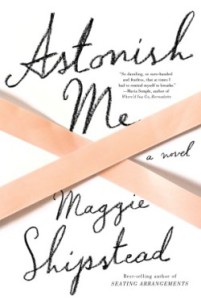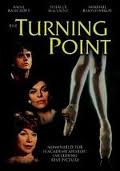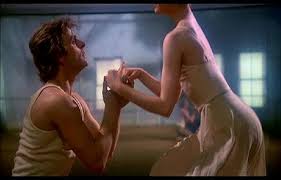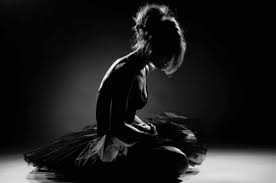The choreography is old-fashioned, but as Rusakov circles the stage doing high, perfect coupés jetés en tournant, his technique is not fusty but pure. His movements are quick but unhurried, impossible in their clarity and difficulty and extraordinary in how they seem to burst from nowhere, without any apparent effort or preparation. But the beauty of Arslan’s dancing is not what moves Joan to cry in her red velvet aerie: it is a dream of perfection blowing through the theater. She has been dancing since before her fifth birthday, and she realizes that the beauty radiating from him is what she has been chasing all along, what she has been trying to wring out of her own inadequate body. Forgetting herself, she leans out over the railing, wanting to get closer. Etonnez-moi, Diaghilev had once said to his dancers in the Ballets Russes. Astonish me.
Finally, someone has given me the ballet novel I’ve been waiting for. Finally, it’s not just young adult fodder, challenges facing budding ballerinas, nor is it the heavy, brooding, darker-side-of-ballet material (Black Swan, anyone?) showing up. Instead, it’s an engrossing yarn, spanning thirty years, flitting in and out of the world of ballet in the most delicious manner. Most surprisingly, it’s written by someone who’s not involved in the dance world in any capacity. She’s just an incredibly good writer. Astonish Me is the name of Maggie Shipstead’s new novel, following the success of her first novel, Seating Arrangements, a New York Times bestseller, the winner of the Dylan Thomas Prize and the Los Angeles Times Book Prize for First Fiction. And astonish me, Shipstead did.
The story in a nutshell: Joan is a professional ballet dancer, painfully aware that her level of talent dooms her to mediocrity, whose biggest claim to fame is that she helped a Soviet ballet star, the prodigiously talented Arslan Rusakov, defect in 1975. A torrid but too-brief love affair with the charismatic, narcissistic Arslan only serves to emphasize her limitations, and finally she bows out, quits dance, returns home to Jacob, the besotted boy-next-door from her past. She marries him, they move to California, where she assumes a staid, stable life while raising their son, Harry. But as the years pass, Joan comes to understand that ballet isn’t finished with her yet, mostly in the form of her own son’s possibly prodigious talent in ballet. Through Harry, and Joan’s connection with her old ballet friend Elaine, a compatriot who made it all the way up the ranks to principal, she is pulled back into the world she thought she’d left behind, back into dangerous secrets, and back, inevitably, to Arslan.
Shipstead hits the sweet spot in the literary-meets-commercial subgenre, with writing that is, at its core, solid, intelligent, finely crafted. Iowa Workshop graduates seem to have this way of writing that I’m utterly besotted with. Deliciously engrossing story that never develops an affected, overly self-conscious style. I call it old fashioned kind of storytelling. You know those books you loved so much as a kid, hurrying home from school and losing yourself in it, utterly swept up in this other life? Oh, the satisfaction. (Did anyone read Noel Streatfeld’s Ballet Shoes when they were young? Oh, how delicious.) From the Iowa Writers’ Workshop have come several lifelong favorite books of mine: John Dalton’s Heaven Lake, Curtis Sittenfeld’s Prep, Ann Patchett’s Bel Canto. I recognize we’re talking four very different novels here, but the thing that links them is that they are delicious stories, well-written, well-crafted, ones you escape into, savoring every chapter, every line. The kind of book where you slow down to enjoy even more rather than finish it too fast. But no, wait. I was rushing through Astonish Me. It was too interesting and compelling not to.
The story covers the years from 1973 to 2002. Its chronology is mixed around and that’s not going to appeal to all readers. I myself had no problem with it. I enjoyed the pacing, the way the story divulged its answers and mysteries, although the most relevant “secret” doesn’t take shuffling of the story around to figure out. The average reader will figure it out quite early, but the way it’s presented makes for a smoother read, giving it importance at the right point of the story.
Astonish Me has a familiar story base, sort of literature’s follow-up to the 1977 film The Turning Point, starring Anne Bancroft, Shirley MacLaine and Mikhail Baryshnikov. In fact, there are a lot of parallels, but fortunately none that too closely resemble the story so as to make it seem derivative. Whereas Turning Point seemed to follow more closely an American Ballet Theatre kind of company, this story’s company closely resembles Balanchine’s New York City Ballet of the 1970’s. There’s enough to make us feel like we know Mr. K, the Russian-born artistic director. Like Balanchine, there are the female muses he uses to power his work, the signature perfume he bestows on each of these chosen female dancers. And Arslan Rusakov is clearly created in the likeness of Mikhail Baryshnikov. but hey, I loved it. I was so enamored of him when he burst onto U.S. stages and I just loved him in The Turning Point. This book was like a dear old friend, returned from the past to further entertain me.
Shipstead writes with authority and all the right detail. After a while, I stopped caring that she didn’t have any sort of dance background to reference, and simply relaxed into the wonderful prose. Here are a few excerpts:
Elaine has grown harder. Her voice, her eyes, her bones. Her sternum is like a turtle shell with skin stretched over it. They are all thin, dancers, but Joan can discern infinitesimal variations in thinness, and Elaine’s is the minimalist body of the survivor. She has reduced herself to the most essential pistons and gears. Nothing extra can be allowed to create strain or cause wear.
And here’s Joan, mulling over the choice she made years back, to leave ballet and settle down with a family.
She doesn’t miss the feeling of living at an accelerated pace, each year counting for more than an ordinary fraction of life, like dog years. Her childhood was dominated by discipline, fear, repetition—her small self in an endless, tearful hurry to get better, to get good in time to have a career. Her childhood bled seamlessly into her adulthood, each contaminated by the other.
Boy. Great stuff.
And here’s narration through the voice of Elaine, her ballet friend who took her career all the way to the top, to principal with the company and, after Mr. K’s death, assuming the artistic director’s position. Here, she’s observing Harry dance:
As he whirls through the slave boy variation, he surprises even her. He is a gravity-defying dervish, full of bravura and brio, all the things male dancers need to be full of. He does the horribly difficult pirouettes where he pliés on his supporting leg without losing momentum. He does the turning jumps cleanly and with good height. His takeoff is naturally quick; he doesn’t need a low plié to get off the ground, even in fifth position. And there is a welcome hint of interpretation beyond the technique, a hint of defiance from the slave. Even before she’d seen Harry dance, years ago, when Joan had pulled that gap-toothed school picture from her wallet, Elaine had recognized him as a potential asset for the company. Now is the right time to secure him. When he is still young and his technique still pliable.
You can likely guess where the story goes from there. Harry’s prodigious talent takes him from the safety of California (Joan’s feelings, not his), right into the New York world Elaine and Arslan Rusakov inhabit, and there you have it, all coming full circle for Joan, and not in a good way.
My lone gripe is that I didn’t particularly like the way the story ended. [Note: spoiler alert, further down – I’ll let you know when to shut your eyes.] Chloe, the girl living next door to Joan and family in California, turns out to have talent as a ballet dancer, initially more so than Harry, even. As Joan’s protégée, she thrives, but, sadly, lacks the proper body type to be a successful professional ballet dancer, a difficult but true fate for many a dancer. And yet [okay, shut your eyes if you don’t want to know too much], invitations to ballet summer intensives come her way, as do top-notch apprenticeships, and further opportunities, in spite of her wrong body type, her slightly unorthodox energy within her classical ballet dancing. I’d been set up to think she would be the girl who wanted ballet to be her world, but it wasn’t, another painful fact of life that many a young dancer needs to make peace with. But, nope, and perhaps as a result, I found the final section of the story, the final dance performance and its set-up to be almost too much to swallow. Or maybe I was simply frustrated that this wonderful surprise of a book was coming to an end, and I simply didn’t want it to.
Small detail. Point remains, I loved this book, and I’m on my feet applauding for this wonderful ballet story and writing that will remain in my mind for some time to come.
PS: You know how I love Paris and Palais Garnier, right? (https://www.theclassicalgirl.com/502/ I had so much fun reading the following. Boy, talk about a novel tailored to my personal tastes..
Joan kneels in a dark box in the third loge of the Palais Garnier, the Opéra, peeping over the red velvet railing. Six rickety chairs stand close around her, but she knows they creak and is careful not to disturb them. The houselights are down, but the glow from the stage picks out a profusion of gilded plasterwork: serene deities, trumpeting angels, lyres, garlands, flowers, oak leaves, masks, Corinthian columns, all deeply shadowed, piling up around the proscenium and among the boxes like the walls of a craggy gold cave, climbing to Chagall’s painted round ceiling of naked angels and voluptuous ballerinas and goats and chickens and lovers and blue Eiffel Tower and red-splotched rendering of the Palais itself. From the center of this hangs the great sleeping chandelier: an enormous gold and glass thistle hung upside down to dry, darkly gleaming.
Knopf will let me go on with the excerpt, right? You don’t mind, do you, reader? It’s just so delicious.
For Joan, Paris has the feeling of waiting. All the elegance, the light and water and stone and refined bits of greenery, must be for something, something more than simple habitation and aggressive driving of Renaults and exuberant besmearing with dog shit. The city seems like an offering that has not been claimed. Its beauty is suspenseful. Joan has walked the boulevards and bridges and embankments, sat in the uncomfortable green metal chairs in the Tuileries, puttered down the Seine on a tourist barge, been to the top of the Eiffel Tower, stared politely at countless paintings, been leered at and kissed at by so many men, stood in patches of harlequin light in a dozen chilly naves, bought a scarf she couldn’t afford, surreptitiously stroked the neatly stacked skulls in the catacombs, listened to jazz, gotten drunk on wine, ridden on the back of scooters, done everything she thinks she should in Paris, and still there has always been the feeling of something still to come, a purpose as yet unmet, an expectation.
But, now, in the dark, on the red velvet couch where fashionable Parisian ladies used to retire from the scrutiny of the opera house, Joan finds herself unexpectedly atop a moment that feels significant. Her life, unbeknownst to her, was narrowing around this point, funneling her toward it. The city was never waiting. She was waiting. For Arslan. Already she has started to think of him by his first name. If the beauty of Paris is suspenseful, the beauty of his dancing is almost terrible. It harrows her. Her throat is tight with fear. She is afraid of how this man, this stranger, has already changed the sensation of being alive. She is afraid he will slip away. All the things she has felt for months—the mundane loneliness, the frustration with language, the nagging anxiety, the gratitude for the opportunity to dance—all that is gone, replaced with brutal need. She should leave. She should go home and then to class tomorrow and the next day and the day after that. But her need is too powerful to ignore. She must see it through.
And this, dear reader, is what you now need to do, as well. Get this book.
It’ll astonish you.




Lovely review! Thanks for the excerpts. You’ve made me want to go out and pick up a copy. 🙂
Thanks for the comment, balletrist! Ooh, yes, it’s worth getting a copy. The hour I finished it, I went to order her first book, Seating Arrangements, on Amazon. It arrived 3 days ago and I immediately got sucked into it. I just LOVE when this kind of thing happens. Can’t believe I missed this book was when it came out. (The story takes place the weekend of a wedding, and I thought it was going to be “wedding lit” or something too sugary for me. Wow, mistake. It’s very, very good writing.)
Sigh… I’m in book heaven!
Hi! I found your review by googling around because I just finished Astonish Me and was curious what other readers thought of it. I liked your review a lot. I feel compelled to comment because I agree with your comments about Chloe and the ending. I found the ending quite rushed and wish so much we had gotten more details about Harry and Joan’s thoughts on what ends up happening to Chloe and who she ends up in a romantic relationship with. I also didn’t really like Arslan. He was quite cruel to people who helped him and I guess I just wanted to understand why so many people seemingly fell all over him. I guess I thought the final ballet C and A put on was a bit much too. I liked Joan and I felt badly for her that it all came crashing down. I wish we had also learned more what Joan thought about her secret being let out and wish we could have read any conversations between Joan and Harry about the secret. Anyway, great review and thanks for reading!
Ooh, Julia, I so enjoyed reading your own thoughts on Astonish Me. I was nodding my head in agreement the whole time. Over at Amazon, a lot of people were commenting on how they couldn’t connect with Arslan, and how they didn’t like his character. Weirdly, it all worked for me, b/c I think there are people out there that are so hugely talented, they simply don’t play by the rules the rest of humanity plays by. Often, though, they have sacrificed a “real” life for their craft, and for Arslan, I totally bought it, that he’d given up a life in Russia and, for a Russian, that could be absolutely everything. What, like you, I didn’t buy, was the syrupy ending for him. Um, no way. If he’s who he is through most of the story, and, like I said, I actually liked him, even though he was a narcissistic asshole, then this inner sensitivity that arises that would make him choose such a humble, homespun partner… Um, didn’t buy it. Like you said, some rushing there at the end.
But I still love the book like mad. And I love your comments. I felt a bit like I was stepping out on a limb, stating what I liked and didn’t like, not sure if anyone would agree. Whew, someone did!
Thanks so much for posting your comment instead of just thinking it. Much appreciated!
Can someone tell me what the last chapter means?! Who does Arslan go to see in Virginia? And it seems obvious to me that Chloe ends up with him.
Em, I’d love to give you an answer, but it’s been so long since I read the book, I don’t have a clue. I’ll go hunt down my copy and see if I can get back with you on that.
Aha, found the answer. The last chapter was from the very beginning of the story. When he had Joan’s message/address, and decided to contact her, and thus their own relationship started. It just jumped way, way back in time. Definitely a confusing chronology!
I just listened to the audiobook and I so want Joan and Jacob to stay together despite Arslan and Chloe’s duplicity. Does anyone else feel the same? She gives us a little hope,
Karen, yes!!!